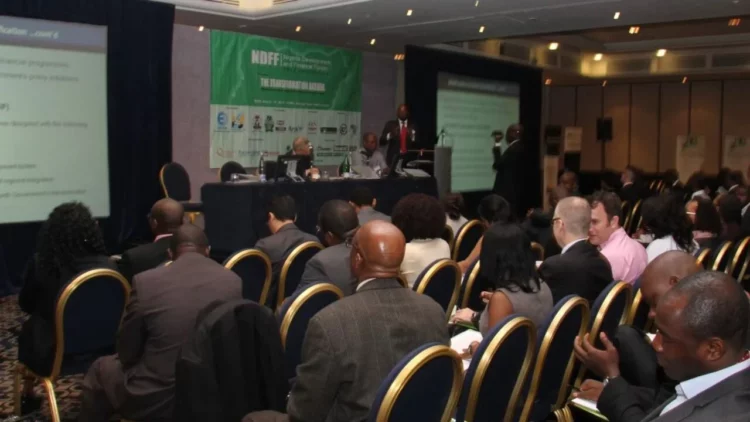
Stakeholders and participants at the Nigeria Development and Finance Forum (NDFF) 2024 Conference, have urged the federal government to develop frameworks that will deliver palliatives in an efficient and cost-effective manner to vulnerable citizens in the country.
This was part of the 15 recommendations for the economy at the end of two-day conference held on May 8-9, 2024 in Abuja and had as its theme “The Road to Economic and Social Welfare Transformation.
Participants were all in agreement that the provision of palliatives to vulnerable citizens is not only necessary but also important to cushion the impact of economic shocks in the country.
In a communique signed by director, Nigeria Development and Finance Forum, Jide Akintunde, the conference agreed that demand for palliatives will remain because global economic shocks and shocks from local economic, social, and climate crises, which are no longer a rarity, are expected to continue to occur regularly.
The conference also highlighted the importance of policies that focus on improving the business environment, incentivizing production, and boosting industrial capacity.
Participants also emphasised the need for market reforms, but stressed that these reforms must be accompanied by the rebuilding of institutions with a values-driven and efficient approach. Investment in health, education, and industrialization was identified as vital for sustainable socio-economic development in Nigeria.
On governance and institutional development, the conference recognised that good governance, leadership skills, and a coherent economic agenda were recognized as essential for long-term investment confidence in Nigeria.
The conference cited the example of the National Agency for Food and Drug Administration and Control (NAFDAC) as an institution that has made incremental progress and highlighted the importance of enabling critical success factors.
The conference, which brought together policymakers, business leaders, and development experts, also highlighted the importance of policies that focus on improving the business environment, incentivizing production, and boosting industrial capacity. Participants emphasised the need for market reforms, but stressed that these reforms must be accompanied by the rebuilding of institutions with a values-driven and efficient approach.
Investment in health, education, and industrialization was identified as vital for sustainable socio-economic development in Nigeria.
The conference called for a holistic approach to sustainability that encompasses economic growth, social equity, and environmental responsibility. Participants stressed the importance of policies that promote gender equality and support women in business, as these measures are crucial for economic transformation in Nigeria.
The conference also acknowledged the significant growth opportunities offered by Nigeria’s blue economy and called for incentivization and investment promotion in this sector. Participants also highlighted the tangible impacts of climate change, which are affecting agriculture, food security, and exacerbating conflicts like herders-farmers clashes. The conference also emphasised the need for mitigation and adaptation actions, including the implementation of green economic growth frameworks, to address climate vulnerabilities in Nigeria.
On collaboration and investment, participants underscored the vital importance of public-private-international sector collaboration in developing innovative regulatory and financing frameworks for sustainable economic progress in Nigeria.
Platforms like the NDFF conference were recognized as facilitating high-level networking and idea generation to drive economic development, resilience, and inclusive progress in the country.
The recommendations from the NDFF conference underscore the urgent need for proactive measures, policy reforms, and collaborative efforts to address the challenges facing Nigeria’s economy. By focusing on these key areas and implementing the proposed solutions, Nigeria can build a more resilient and sustainable economic future for its citizens.
Copied
